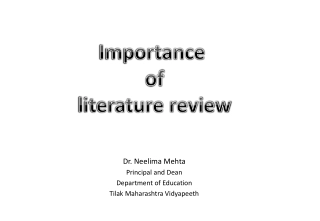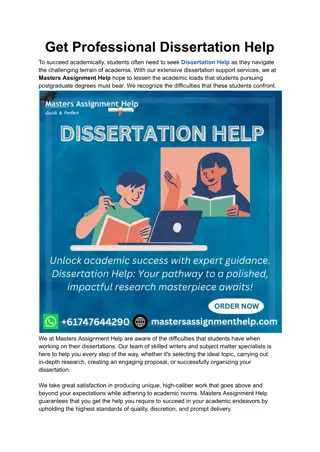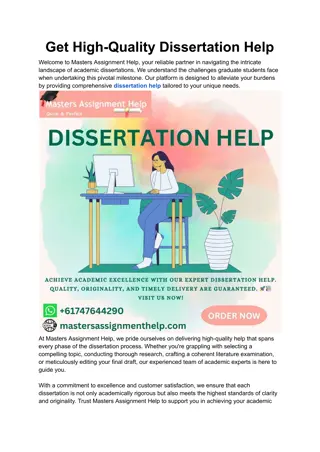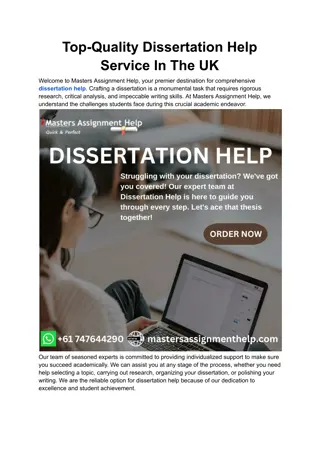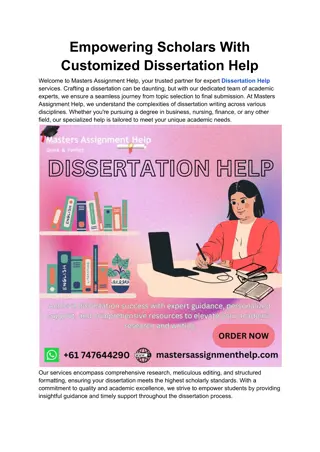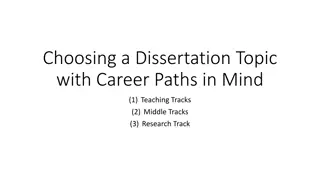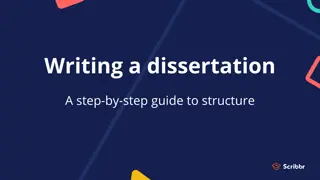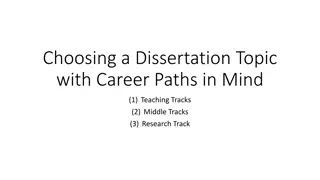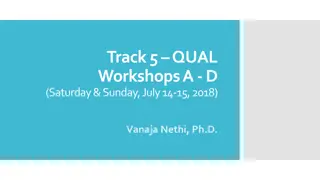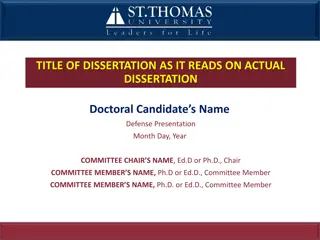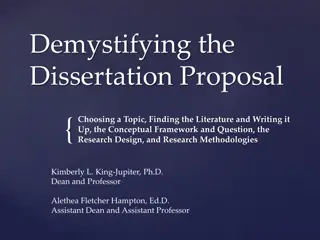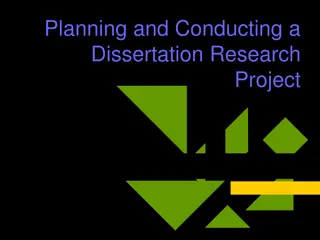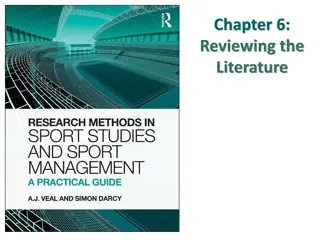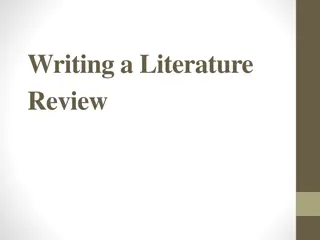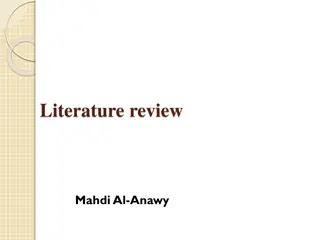Comprehensive Literature Review Guidelines for Your Dissertation
Discover expert guidelines for conducting a thorough literature review in your dissertation. Explore topics such as literature search strategies, theoretical frameworks, review of the literature, synthesis, and analysis, with actionable tips provided throughout.
Download Presentation

Please find below an Image/Link to download the presentation.
The content on the website is provided AS IS for your information and personal use only. It may not be sold, licensed, or shared on other websites without obtaining consent from the author. Download presentation by click this link. If you encounter any issues during the download, it is possible that the publisher has removed the file from their server.
E N D
Presentation Transcript
Chapter 2 The Literature Review
Introduction Literature Search Strategy Theoretical Framework Contents Review of the Literature Synthesis Analysis Summary Need help with your dissertation? Call 727-442-4290
Restate the purpose of your study Remind the reader of the importance and need for your study Introduction Preview contents of the Chapter Need help with your dissertation? Call 727-442-4290
Describe your comprehensive search for research List databases and search tools used Literature Search Strategy Include specialized journals searched, if you searched them Include key terms (and combinations) that you used as search terms English only Include any way that you filtered or qualified your search Full text Date of publication (i.e., 2015-present) Peer reviewed, academic articles Need help with your dissertation? Call 727-442-4290
Not required in the literature review for all schools Check your school s template Extended discussion of the framework that may appear in Chapter 1 Who developed the theory? Year? To explain what? Theoretical Framework Define the theory, along with any associated components Use the theoretical foundation associated with your instrument or major concepts Discuss what researchers have used the theory for How does the theory help explain what you are studying? Connect to your study Need help with your dissertation? Call 727-442-4290
Cover recent literature on your factors, variables, and major concepts Use headers to organize material into sections based on factors, variables, and major concepts Review of the Literature Organize material in sections typically by having a section introduction and then reviewing the research Reviewing research consists of synthesis and analysis Need help with your dissertation? Call 727-442-4290
Synthesis: The combination of parts so as to form a whole Combine information from studies to make your points Synthesis Synthesize at the paragraph level and use standard paragraph organization strategy Topic (one sentence) Evidence and discussion of topic (several sentences) From the literature on the topic Includes noting where findings differ from and align with one another Summary sentence and transition to next topic (one sentence) Need help with your dissertation? Call 727-442-4290
Topic sentence, evidence related to or discussion of the topic, and a summary or transition statement to the next topic Eating disorders are psychological illnesses that involve individuals having abnormal relationships with food (Smith, 2019). Individuals with eating disorders Synthesis Example often have a distorted view of their bodies and behavior, especially those who suffer from bulimia and anorexia (Jones, 2018). Eating disorders usually include excessive or inadequate food intake that can adversely affect a person s wellbeing (Williams, 2020). Eating disorders can appear at any age or stage of an individual s life (Williams, 2020). The most common forms of eating disorders include bulimia nervosa, anorexia nervosa, and binge eating disorder (Smith, 2019). Need help with your dissertation? Call 727-442-4290
Analysis of the research involves noting shortcomings or gaps of studies Note trends and gaps in the research Analysis Reiterate the research problem and need for your study Culminates in argument for conducting your study Need help with your dissertation? Call 727-442-4290
Recap major points from the Chapter Remind the reader of the research problem based on what is in and not in the literature Summary Reiterate the need for your study Need help with your dissertation? Call 727-442-4290
Statistics Solutions is a full-service dissertation consulting company providing graduate students timely, editorial support for their dissertations and scholarly projects For information about our services, receive a complementary 30-min consultation available Mon-Fri 9-5 ET Additional Support @StatisticsSolutions.com Contact info@StatisticsSolutions.com Phone: 877-437-8622


